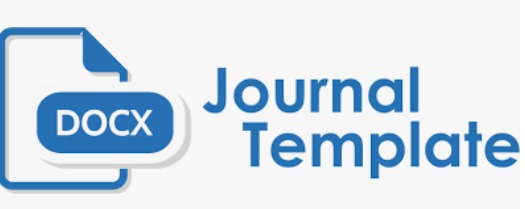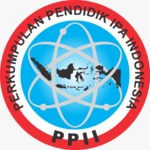Analisis Didaktis untuk Meningkatkan Hasil Belajar Calon Guru Fisika Ditinjau dari Gaya Kognitif dan Gaya Belajar
DOI:
https://doi.org/10.29408/kpj.v5i2.4455Keywords:
Didactic analysis, learning outcomes, Pre-service teacher, cognitive style, learning styleAbstract
This study aims to analyze the learning outcomes of prospective physics teachers in terms of cognitive and learning styles. The sample consisted of 47 prospective physics teachers at the University of Mataram. The instruments used consisted of the Group Embedded Figures Test (GEFT), the VAK learning style questionnaire, and the learning outcomes test instrument. The research data were then categorized and analyzed using descriptive statistics to see a picture of student learning outcomes in terms of their learning styles and cognitive styles. Based on the results of data analysis, it can be seen that there are differences in learning outcomes between students who have a field independence (FI) cognitive style and students who have a field dependence (FD) cognitive style. Students who have FI cognitive style tend to get better scores when compared to FD. When viewed from the learning style, it can be seen that the number of students who have visual learning styles is 46.80%, audio is 8.51%, and kinesthetic is 44.68%. Students who have a kinesthetic learning style tend to get better scores when compared to students who have a visual and audio learning style. By paying attention to the characteristics and percentage of students who have FI and FD cognitive styles and students who have visual, audio, and kinesthetic learning styles, one alternative learning that can be used to improve student learning outcomes is cooperative or experimental-based collaborative learning model.References
Alomyan, H. (2004). Individual differences: Implications for web-based learning design. International Education Journal, 4(4), 188-196.
Altun, A., & Cakan, M. (2006). Undergraduate Students' Academic Achievement, Field Dependent/ Independent Cognitive Styles and Attitude toward computers. Educational Technology & Society, 9(1), 289-297.
Chen, S. Y., & Macredie, R. D. (2002). Cognitive styles and hypermedia navigation: Development of a learning model. Journal of the American Society for Information Science and Technology, 53(1); 3-15.
Chou, H. W. (2001). Influences of cognitive style and training method on training effectiveness. Computers & Education, 37 (1); 11-25.
Ford, N. & Chen, S.Y. (2001). Matching/ mismatching revisited: An empirical study of learning and teaching styles. British Journal of Educational Technology, 32(1): 5-22.
Gunawan, Sahidu, H., Harjono, A., and Suranti, N.M.Y., (2017). The Effect of Project Based Learning With Virtual Media Assistance on Student’s Creativity In Physics. Cakrawala Pendidikan, 36(6), 167–179.
Hamzah, B. U. (2010). Orientasi Baru Dalam Psikologi Siswa yang Memiliki Gaya Belajar. Jakarta: Bumi Aksara
Isaksen, S. G. (2007). An exploratory studi of the relationships between an assessment of problem solving style and creative problem solving. The Korean Journal of Thingking & Problem Solving, 17 (1), hlm. 5–26.
Ismuwardani, Z., Nuryatin, A., & Doyin, M., (2019). Implementation of Project Based Learning Model to Increased Creativity and Self-Reliance of Students on Poetry Writing Skills. Journal of Primary Education, 8 (1): 51 – 58
Jamaris, M. (2015). Orientasi Baru dalam Psikologi Pendidikan. Bogor: Ghalia Indonesia.
Kozhevnikov. M. (2007). “Cognitive Styles in the Context of Modern Psychology: Toward an Integrated Framework of Cognitive Style”. Psychological Bulletin. 133 (3): 464–481.
Lee, C.H.M.,Cheng, Y.W., Rai, S., Depickere, A., (2005). What affect student cognitive style in the development of hypermedia learning system. Computers & Education, 45 (): 1–19
Lin, P. C., Lu, H.K., & Lin, Y.C., (2018). A Study of Knowledge Dimension and Cognitive Process Pattern of Cognitive Style Differences in STEM Cooperative Learning Environment. International Journal of Information and Education Technology, 8 (10): 720-724.
Lou, S.J., Chou, Y.C., Shih, R.C., Chung, C.C., (2017). A Study of Creativity in CaC2 Steamship-derived STEM Project-based Learning. EURASIA Journal of Mathematics Science and Technology Education, 13(6):2387-2404
Marie, R.P., & Law, C.C. (2010). Find the Perfect College for You: 82 exceptional Schools That Fit Your Personality and Learning Style: United States of America: SuperCollege, LLC
Martimore, T. (2008). Dyslexia and Learning Style: a Practitioner’s Handbook Second Edition. England: Whurr Publishers
Milla, D., Jufri, A.W., Soeprianto, H (2019). The Effectiveness Pf Project-Based Learning For Biology Class In Developing The Science Processing Skills And Creativity Of High School Students. Journal of Primary Education, 8 (1):25-30
Noviana, H. (2017). Pengaruh Model Project Based Learning Terhadap Kemampuan Berpikir Kreatif Matematika Siswa. Jurnal Edumats, 3(2), 110-117.
Onyekuru, B.U., (2015). Field Dependence-Field Independence Cognitive Style, Gender, Career Choice and Academic Achievement of Secondary School Students in Emohua Local Government Area of Rivers State. Journal of Education and Practice, 6 (10): 76-86.
Payung, M.S.B., Nuriah, T., & Sarkadi (2017). Pengaruh Model Pembelajaran dan Gaya Kognitif Terhadap Hasil Belajar Sejarah Siswa di SMAN 28 Kab. Tangerang, Jurnal Pendidikan Sejarah, 6 (1):29-41
Putri, S.U., Sumiatri, T., & Larasati, I. (2019). Improving Creative Thinking Skill Through Project-Basedlearning in Science For Primary School. IOP Conf. Series: Journal of Physics: Conf. Series:1-6.
Setyosari, P., & Widijoto, H., (2007). Metode Penelitian Pendidikan. Malang: Fakultas Ilmu Pendidikan Universitas Mataram.
Sugiyono, (2012), Statistika Untuk Penelitian. Bandung: Alfabeta.
Tamba, P., Motlan, & Turnip, B.M., (2017). The Effect of Project Based Learning Model for Students’ Creative Thinking Skills and Problem Solving. IOSR Journal of Research & Method in Education, 7 (5): 67-70
Ulya, H., (2015). Hubungan Gaya Kognitif dengan Kemampuan Pemecahan Masalah Matematika Siswa. Jurnal Konseling GUSJIGANG, 1(2): 2460-1187
Usmeldi, U. (2018). The Effect of Project-based Learning and Creativity on the Students’ Competence at Vocational High Schools. Advances in Social Science. Education and Humanities Research. 299():14-17.
Vargas, O.L., Ibáñez, J.I., & Prada, O.W., (2017). Students’ Metacognition and Cognitive Style and Their Effect on Cognitive Load and Learning Achievement. Educational Technology & Society, 20 (3), 145–157.
Wood, G (2000). How to Study: Discovery How Your Personal Learning Style Can Help you Succeed. New York: Learning Express
Syahidi, K., Hizbi, T., Hidayanti, A., Ditinjau, B., Kemampuan, D., & Kritis, B. (2020). The Effect of PBL Model Based Local Wisdom Towards S tudent ’ s Learning Achievements on Critical Thinking Skills Pengaruh Model PBL Berbasis Kearifan Lokal Terhadap Prestasi. Kasuari : Physics Education Journal ( KPEJ ) Universitas Papua, 3(1), 61–68.
Yunita, N., Zahara, L., & Syahidi, K. (2020). Pengaruh Model Problem Based Learning (PBL) Melalui Lesson Study Terhadap Kemampuan Berpikir Kritis Siswa. Kappa Journal, 4(2), 233–239. https://doi.org/10.29408/kpj.v4i2.2756









